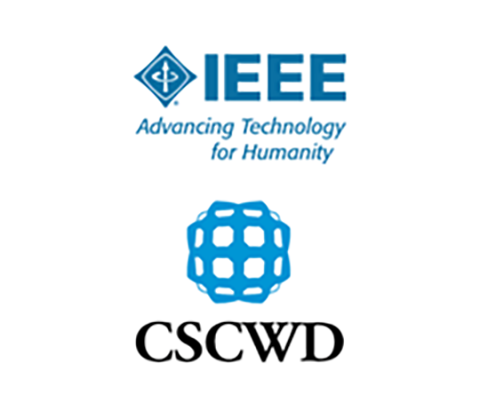

|
Organized
by |
|
Co-Sponsored
by |
|
General
Conference Chair |
|
General
Conference Co-Chairs |
Program
Committee Co-Chairs |
|
Publication
Chair |
|
Special Session Chair |
|
Finance
Chair / Treasurer |
Local Arrangement Chair |
|
International
Steering Committee |
|
Co-Chairs |
|
Secretary |
|
Members |

SS4: Technologies in Low-Carbon Production and Operations
·
Organizers
Dr. Usharani Hareesh Govindarajan, University of Shanghai for Science and Technology, Shanghai, China - Hareesh.pillai@usst.edu.cn,
Prof. Wenxiang Li, University of Shanghai for Science and Technology, Shanghai, China - liwx@usst.edu.cn,
Prof. Rakesh D. Raut, National Institute of Industrial Engineering (NITIE), Mumbai, India - rraut@nitie.ac.in,
and Prof. Linchuan Yang, Southwest Jiaotong University, Sichuan, China - yanglc0125@swjtu.edu.cn
·
Description/Abstract
The Montreal treaty celebrated as the United Nations International Day for the Preservation of the Ozone Layer marked its 35th anniversary on 16 September 2022. Thanks to the treaty, important environmental, health, and economic benefits have been reached, including the phase-out of 99% of ozone-depleting chemicals in refrigerators, air conditioners, and other products. The global health and economic benefits are expected to amount to US$2.2 trillion due to averted damages to agriculture, fisheries, and materials. The Paris Agreement (the next incremental step) came into force in November 2016. It proposed that all countries of the world work together to ensure that global average temperature increases are kept below 2 °C and ideally below 1.5 °C (Rogelj et al., 2016). To contribute to this global goal, many countries have proposed the target of carbon neutrality. Most of them have committed to achieving carbon neutrality by 2050, including the EU, UK, America, Canada, Japan, New Zealand, South Africa, etc. Some countries plan to reach the targets earlier, such as Uruguay, Finland, Iceland, Austria, and Sweden, which propose to become carbon neutral by 2030, 2035, 2040, and 2045, respectively (Li et al., 2022). With global warming in recent decades, climate change has aroused widespread concern worldwide (Li et al., 2019). As the world’s largest emitter of greenhouse gas (GHG) emissions, China has announced the “carbon emission peak before 2030” and “carbon neutrality before 2060” goals (Dong et al., 2022). Electricity and heat production is the largest source of energy consumption and CO2 emissions, followed by transport and industry sectors (Birol, 2021). However, with the recent consolidation in global political sentiments, it is clear that businesses must step up their efforts to reduce carbon emissions across production and operations (Chen et al., 2020). Technologies and advancements such as IoT, blockchain, virtual reality, and edge computing combined with manufacturing principles can make an essential contribution to achieving net zero, as manufacturing plants, machinery, and sophisticated production processes are at the heart of global value creation everywhere (Raut et al., 2021) (Trappey et al., 2021) (Singh et al., 2021). To this end, it is of utmost importance and a significant challenge to better understand the advancements in low-carbon production and operations systems as a path to GHG and promote the capture of CO2 from the atmosphere. Additionally, a view on allied areas such as customer relationships amongst suppliers to curb emissions and developing trusted partnerships offer the best chance for achieving a tailored, economically and ecologically superior solution required for a collective view. This Special Issue aims to solicit high-quality research on technologies and advancements in low-carbon production and operations management. We call for original research and review articles with profound theoretical, methodological, and practical implications and those focusing on new technologies, theories, data, variables, models, sites, and implications.
Potential topics include but are not limited to the following:
• Transform operations to carbon neutrality
• Low-carbon products in the industry, transportation, building, and energy sectors
• Low-carbon assessment based on the life-cycle theory
• Green manufacturing technology innovation for carbon emission reduction
• Intelligent algorithms and methodologies for low-carbon smart manufacturing
• Manufacturing and supply chain impact and technologies as a response to the COVID-19-related disruptions
• Case studies for implementing Industry 4.0 towards monitoring, capturing, and analyzing data and transparent sustainability reporting
References
Birol, F., 2021. CO2 Emissions from Fuel Combustion highlights 2020. International Energy Agency (IEA).
Chen, S., Liu, P., Li, Z., 2020. Low carbon transition pathway of power sector with high penetration of renewable energy. Renewable and Sustainable Energy Reviews 130, 109985. https://doi.org/10.1016/j.rser.2020.109985
Dong, J., Li, Y., Li, W., Liu, S., 2022. CO2 Emission Reduction Potential of Road Transport to Achieve Carbon Neutrality in China. Sustainability 14, 5454.
Li, W., Bao, L., Li, Ye, Si, H., Li, Yiming, 2022. Assessing the transition to low-carbon urban transport: A global comparison. Resources, Conservation and Recycling 180, 106179. https://doi.org/10.1016/j.resconrec.2022.106179
Li, W., Bao, L., Wang, L., Li, Y., Mai, X., 2019. Comparative evaluation of global low-carbon urban transport. Technological Forecasting and Social Change 143, 14–26.
Raut, R. D., Mangla, S. K., Narwane, V. S., Dora, M., & Liu, M. (2021). Big Data Analytics as a mediator in Lean, Agile, Resilient, and Green (LARG) practices effects on sustainable supply chains. Transportation Research Part E: Logistics and Transportation Review, 145, 102170.
Rogelj, J., den Elzen, M., Höhne, N., Fransen, T., Fekete, H., Winkler, H., Schaeffer, R., Sha, F., Riahi, K., Meinshausen, M., 2016. Paris Agreement climate proposals need a boost to keep warming well below 2 °C. Nature 534, 631–639. https://doi.org/10.1038/nature18307
Singh, P. K., Raut, R., Hong, W. C., & Govindarajan, U. H., 2021. Futuristic technologies for intelligent manufacturing and supply chain management. IET Collaborative Intelligent Manufacturing, 3(3), 203-204.
Trappey, A. J., Trappey, C. V., Govindarajan, U. H., Sun, J. J., 2021. Patent value analysis using deep learning models - the case of IoT technology mining for manufacturing industries. IEEE Transactions on Engineering Management, vol. 68, no. 5, pp 1334-1346.
Future Scope
Revised and expanded versions of papers accepted in this Special Session will be invited to be considered for publication in the IET Collaborative Intelligent Manufacturing (Special Issue: Technologies and Advancements in Low-Carbon Production and Operations)